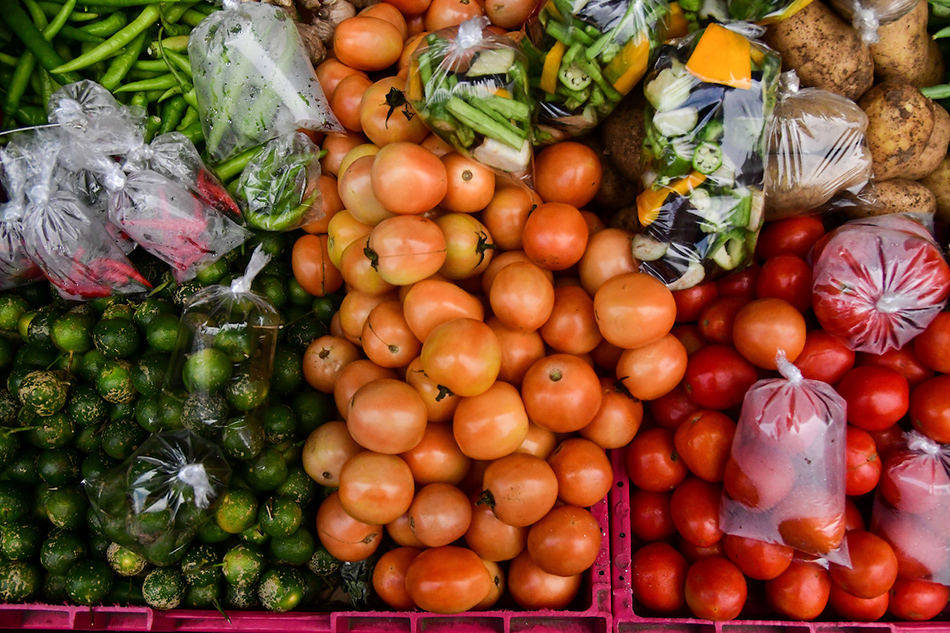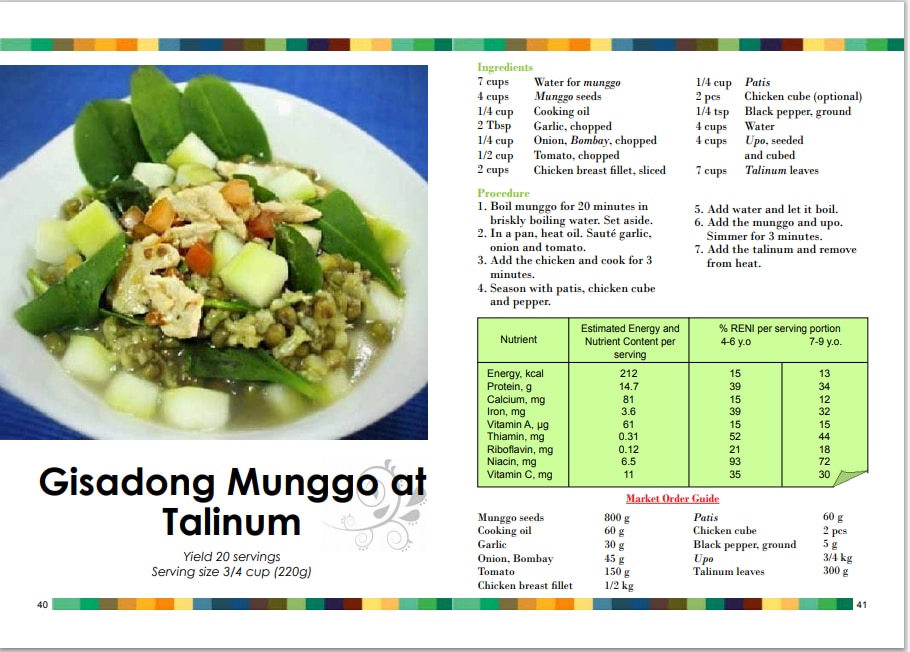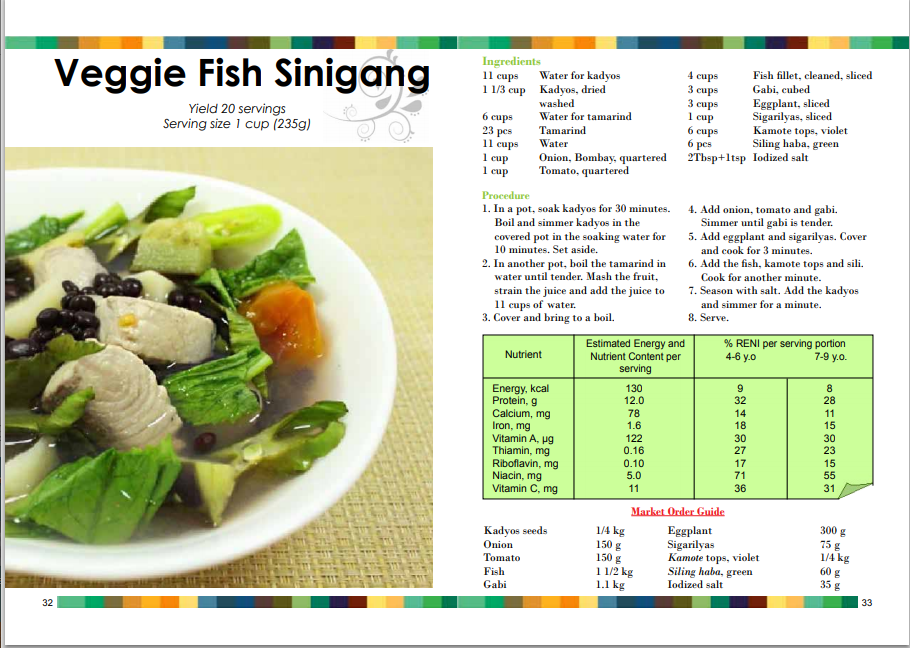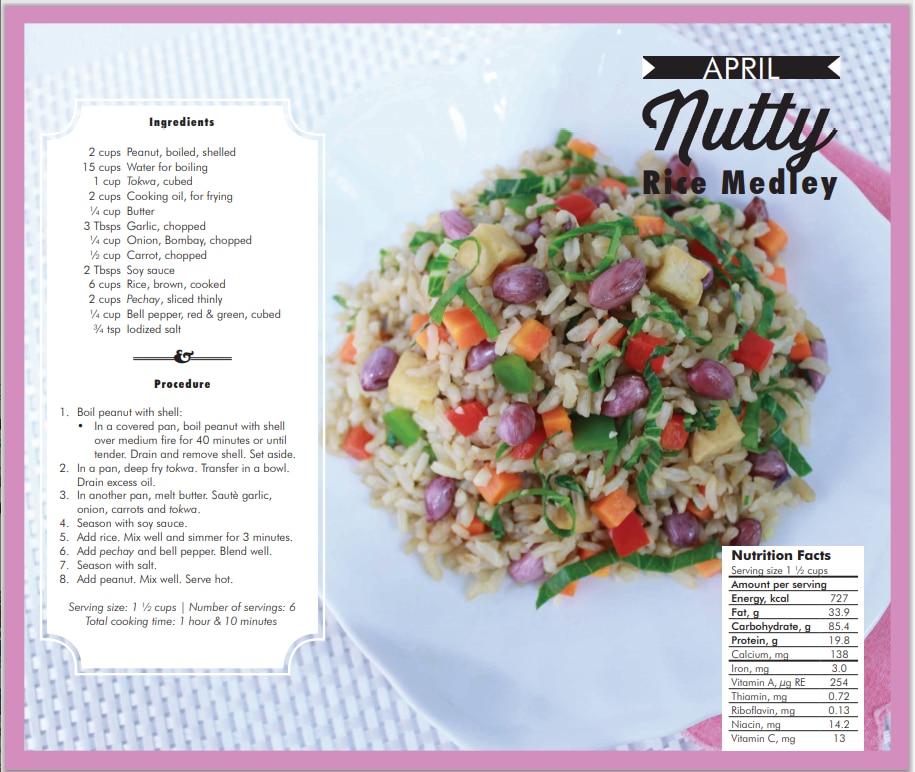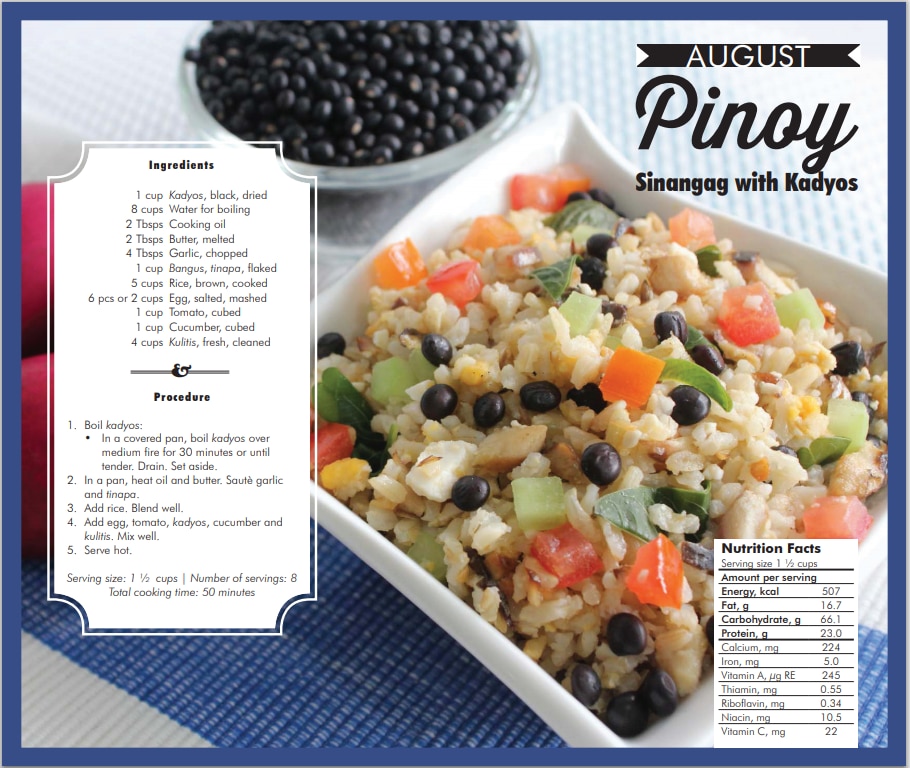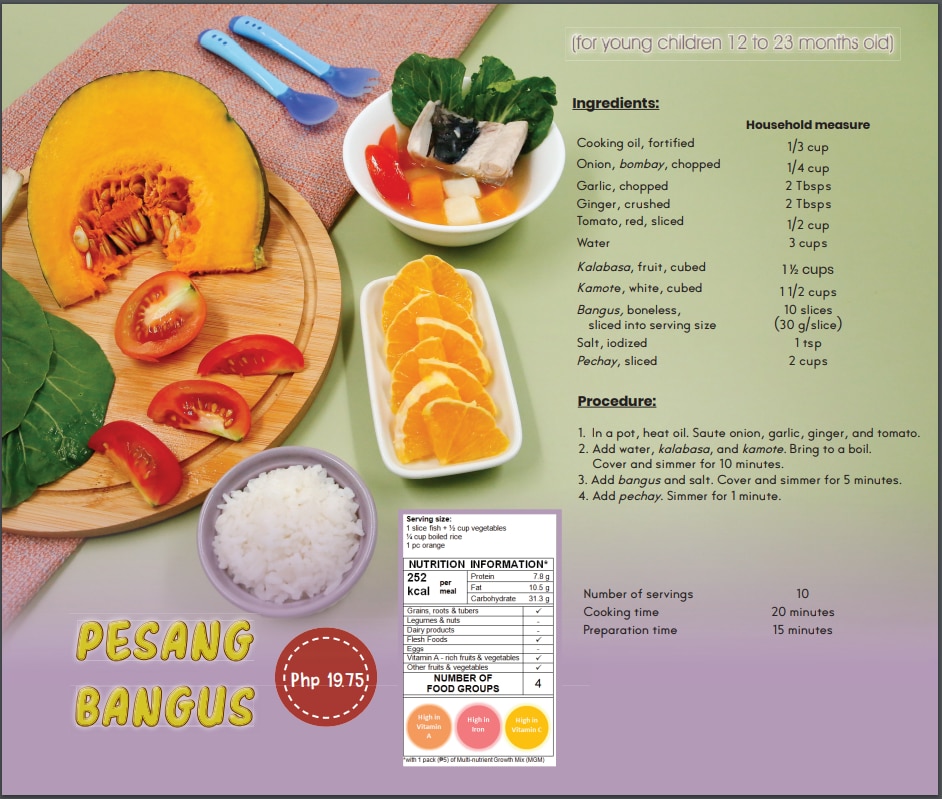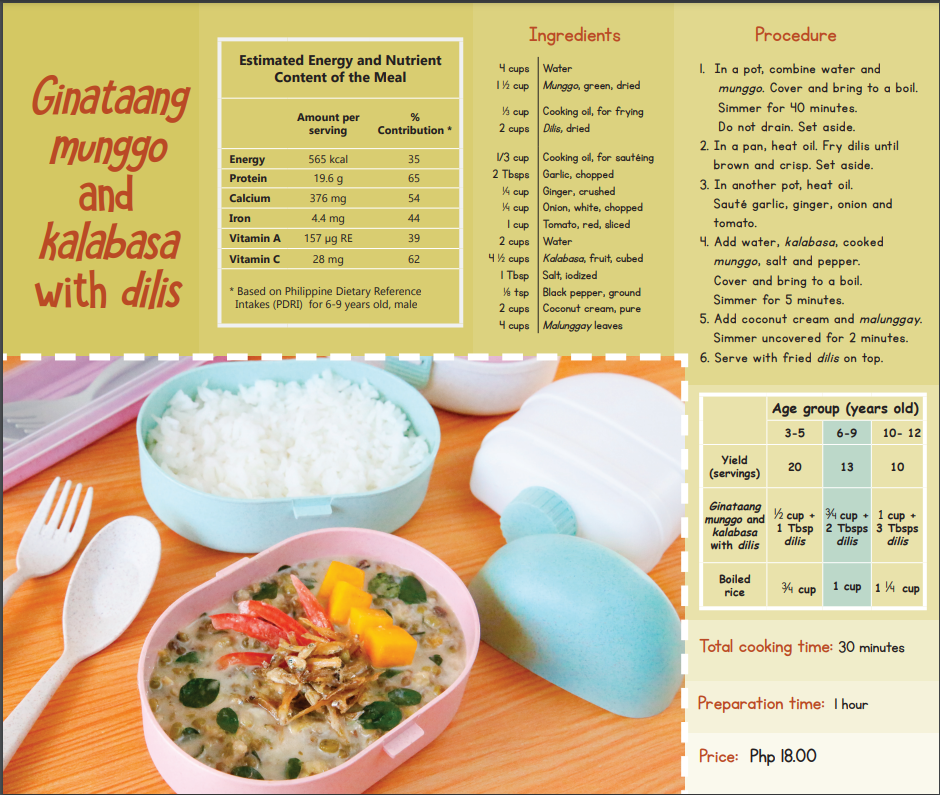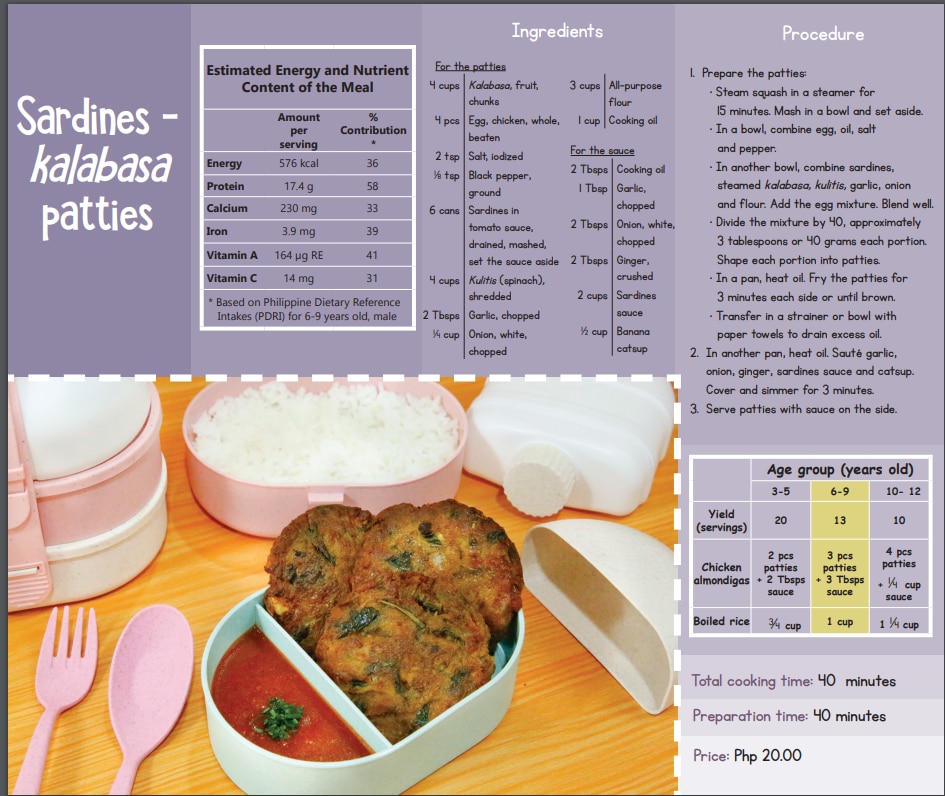Experts urge Filipinos to embrace plant-based diet to boost health amid pandemic
ADVERTISEMENT

Welcome, Kapamilya! We use cookies to improve your browsing experience. Continuing to use this site means you agree to our use of cookies. Tell me more!
Experts urge Filipinos to embrace plant-based diet to boost health amid pandemic
Job Manahan,
ABS-CBN News
Published Apr 03, 2021 07:44 AM PHT
|
Updated Apr 03, 2021 08:19 AM PHT
MANILA— In a society where meat consumption is heavy, are consumers ready to go plant-based?
MANILA— In a society where meat consumption is heavy, are consumers ready to go plant-based?
Experts have urged Filipinos to embrace a plant-based diet as meat products have become expensive, stressing several health benefits one could get by going meat-free to boost the body's defenses amid the continuing COVID-19 pandemic.
Experts have urged Filipinos to embrace a plant-based diet as meat products have become expensive, stressing several health benefits one could get by going meat-free to boost the body's defenses amid the continuing COVID-19 pandemic.
Heavily plant-based diets can lower a person's chances of suffering from non-communicable diseases, according to Philippine Society of Nutritionist-Dietitians public relations officer Jake Andal.
Heavily plant-based diets can lower a person's chances of suffering from non-communicable diseases, according to Philippine Society of Nutritionist-Dietitians public relations officer Jake Andal.
Andal, who advocates for the dietary shift, told ABS-CBN News that cancer, heart, and renal diseases could be prevented by eradicating or limiting a person's meat consumption.
Andal, who advocates for the dietary shift, told ABS-CBN News that cancer, heart, and renal diseases could be prevented by eradicating or limiting a person's meat consumption.
ADVERTISEMENT
"All of them can be managed by diet. All of them can be prevented by good nutrition. Studies have long been elucidating na there is a huge relationship between plant-based diets and non-communicable disease prevention," Andal said in an interview.
"All of them can be managed by diet. All of them can be prevented by good nutrition. Studies have long been elucidating na there is a huge relationship between plant-based diets and non-communicable disease prevention," Andal said in an interview.
Plant-based diets could help increase antioxidants and fiber intake, which protects the heart and kidneys. This could also help in keeping a person mentally healthy, he said.
Plant-based diets could help increase antioxidants and fiber intake, which protects the heart and kidneys. This could also help in keeping a person mentally healthy, he said.
WATCH:
Too much protein, he pointed out, could "take a toll" on our kidneys.
Too much protein, he pointed out, could "take a toll" on our kidneys.
"We also see relationships with cancer prevention because of antioxidants, and fiber as well. We also see the management or prevention of mental diseases or mental health disorders because we see that there is a link between diet and mental health," he said.
"We also see relationships with cancer prevention because of antioxidants, and fiber as well. We also see the management or prevention of mental diseases or mental health disorders because we see that there is a link between diet and mental health," he said.
"One of the facets of good nutrition - which is a common denominator in these researches, is the plant-heavy diet," he added.
"One of the facets of good nutrition - which is a common denominator in these researches, is the plant-heavy diet," he added.
ADVERTISEMENT
Jewel Maribie Luis, a former project officer at the Food and Nutrition Research Institute (FNRI), echoed Andal, and said shifting to plant-based meals could also boost a person's immune system.
Jewel Maribie Luis, a former project officer at the Food and Nutrition Research Institute (FNRI), echoed Andal, and said shifting to plant-based meals could also boost a person's immune system.
Luis explained that a plant-rich diet is a good source of fiber. This, she said, helps the gut's integrity, aids digestion, and nutrient absorption.
Luis explained that a plant-rich diet is a good source of fiber. This, she said, helps the gut's integrity, aids digestion, and nutrient absorption.
"Plant-based food items are good sources of vitamins, minerals, phytochemicals, and antioxidants that is deficient in meat products like beef and pork," said Luis.
"Plant-based food items are good sources of vitamins, minerals, phytochemicals, and antioxidants that is deficient in meat products like beef and pork," said Luis.
"These nutrients are vital to maintain the function of our immune system, circulatory system and other organ system to fight diseases," she added.
"These nutrients are vital to maintain the function of our immune system, circulatory system and other organ system to fight diseases," she added.
She also emphasized that going plant-based is different from being vegan, each of which has a different discipline.
She also emphasized that going plant-based is different from being vegan, each of which has a different discipline.
ADVERTISEMENT
"When we say vegan diets, it means eliminating all animal products, including non-food items that are created by animal source, while plant-based diets do not necessarily eliminate animal products, but focus on eating mostly plants, such as fruits, vegetables, nuts, and legumes," she noted.
"When we say vegan diets, it means eliminating all animal products, including non-food items that are created by animal source, while plant-based diets do not necessarily eliminate animal products, but focus on eating mostly plants, such as fruits, vegetables, nuts, and legumes," she noted.
Andal, meanwhile, said it is high time to start going plant-based to strengthen one's immune system, coupled by standard health protocols against COVID-19.
Andal, meanwhile, said it is high time to start going plant-based to strengthen one's immune system, coupled by standard health protocols against COVID-19.
"I think the missing piece in disease prevention... is also eating healthy or eating properly. And one of the facets again of eating healthy is consuming a plant-heavy diet," he said.
"I think the missing piece in disease prevention... is also eating healthy or eating properly. And one of the facets again of eating healthy is consuming a plant-heavy diet," he said.
The People for the Ethical Treatment of Animals (PETA) in early March called on the government to invest in "plant-based meat" amid high prices of pork, chicken and other meats.
The People for the Ethical Treatment of Animals (PETA) in early March called on the government to invest in "plant-based meat" amid high prices of pork, chicken and other meats.
PETA said a plant-based diet will give people more options, citing health and convenience benefits.
PETA said a plant-based diet will give people more options, citing health and convenience benefits.
ADVERTISEMENT
IMPROVING DIET QUALITY
The Philippine Society of Nutritionist-Dietitians recommended increasing portions of fruits and vegetables in meals, as also recommended by the FNRI.
The Philippine Society of Nutritionist-Dietitians recommended increasing portions of fruits and vegetables in meals, as also recommended by the FNRI.
This is also cheaper, the group said, compared to meals with meats.
This is also cheaper, the group said, compared to meals with meats.
If a person, meanwhile, is looking to increase his protein intake, there are vegetables rich in protein such as garbanzos, nuts, monggo, and red kidney beans, among others.
If a person, meanwhile, is looking to increase his protein intake, there are vegetables rich in protein such as garbanzos, nuts, monggo, and red kidney beans, among others.
"It is a misconception that for example, beans, nuts, and seeds and other proteins from vegetables are inferior to your animal proteins... these plant-based proteins contain vitamins, minerals, and fiber that animal proteins do not [have]" said Andal.
"It is a misconception that for example, beans, nuts, and seeds and other proteins from vegetables are inferior to your animal proteins... these plant-based proteins contain vitamins, minerals, and fiber that animal proteins do not [have]" said Andal.
FROM OUR ARCHIVES:
Luis, on the other hand, emphasized that food preparation also plays a role on nutrients in a dish. She said it would show how a dish could be considered healthy or unhealthy.
Luis, on the other hand, emphasized that food preparation also plays a role on nutrients in a dish. She said it would show how a dish could be considered healthy or unhealthy.
ADVERTISEMENT
She also pointed out that the public should refrain from frying and overcooking vegetables in order to retain their nutrition.
She also pointed out that the public should refrain from frying and overcooking vegetables in order to retain their nutrition.
"Kapag nagluto tayo ng pinakbet 'di ba marami siyang laman na gulay, and we all know that gulay is healthy, but kapag inalam natin kung paano siya niluto, minsan nasosobrahan ng asin o bagoong which is high in sodium, minsan naman [overcooked] 'yung gulay which means that karamihan sa nutrients nung gulay sa pinakbet ay nasira o nawala na," she explained.
"Kapag nagluto tayo ng pinakbet 'di ba marami siyang laman na gulay, and we all know that gulay is healthy, but kapag inalam natin kung paano siya niluto, minsan nasosobrahan ng asin o bagoong which is high in sodium, minsan naman [overcooked] 'yung gulay which means that karamihan sa nutrients nung gulay sa pinakbet ay nasira o nawala na," she explained.
(When we cook pinakbet, it has a lot of vegetables. We think this is healthy, but it depends on how we cook it. Sometimes we put salt or bagoong in the dish too much, which is high in sodium. Sometimes, we also overcook the vegetables, that's why a lot of the nutrients we are supposed to get from pinakbet have already been destroyed.)
(When we cook pinakbet, it has a lot of vegetables. We think this is healthy, but it depends on how we cook it. Sometimes we put salt or bagoong in the dish too much, which is high in sodium. Sometimes, we also overcook the vegetables, that's why a lot of the nutrients we are supposed to get from pinakbet have already been destroyed.)
The following are her recommendations for the correct way of cooking and eating fruits and vegetables:
The following are her recommendations for the correct way of cooking and eating fruits and vegetables:
- In cooking vegetable dishes, rinse ingredients well and do not overcook to retain nutrients.
- To make a healthier meatless dish, avoid frying as it destroys essential nutrients not only in vegetables but also in meat products.
- Steamed, boiled, broiled and grilled are recommended
- Avoid using too much oil, sugar, and salt in cooking.
- Consume fruits that are fresh, especially citrus ones
- In cooking vegetable dishes, rinse ingredients well and do not overcook to retain nutrients.
- To make a healthier meatless dish, avoid frying as it destroys essential nutrients not only in vegetables but also in meat products.
- Steamed, boiled, broiled and grilled are recommended
- Avoid using too much oil, sugar, and salt in cooking.
- Consume fruits that are fresh, especially citrus ones
Both Andal and Luis also agreed that fish is a good meat alternative because of its protein content. Tilapia, bangus, salmon, tuna, and sardines contain omega-3 fatty acids, which are important in lowering one's blood pressure.
Both Andal and Luis also agreed that fish is a good meat alternative because of its protein content. Tilapia, bangus, salmon, tuna, and sardines contain omega-3 fatty acids, which are important in lowering one's blood pressure.
ADVERTISEMENT
RECIPES
Here are some of the meat-free recipes promoted by the FNRI's menu guide calendars in recent years:
Here are some of the meat-free recipes promoted by the FNRI's menu guide calendars in recent years:
Read More:
meatless dish
vegetables
plant-based dish
plant-rich food
plant-based food
health
diet
Philippine Society of Nutritionist-Dietitians
Jake Andal
Jewel Maribie Luis
ADVERTISEMENT
ADVERTISEMENT



